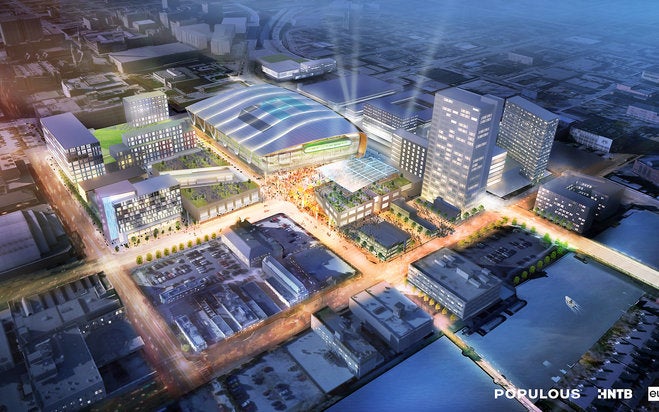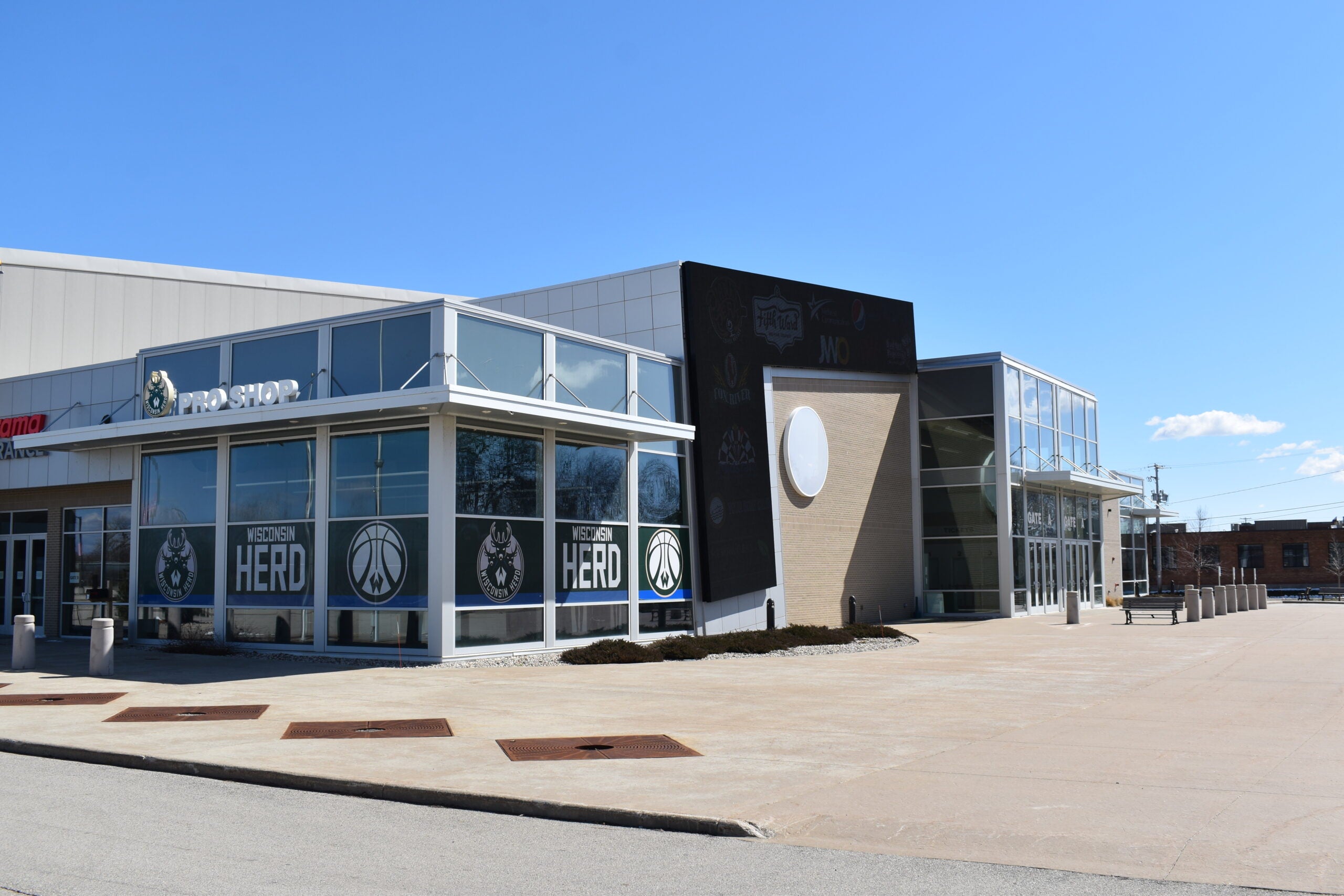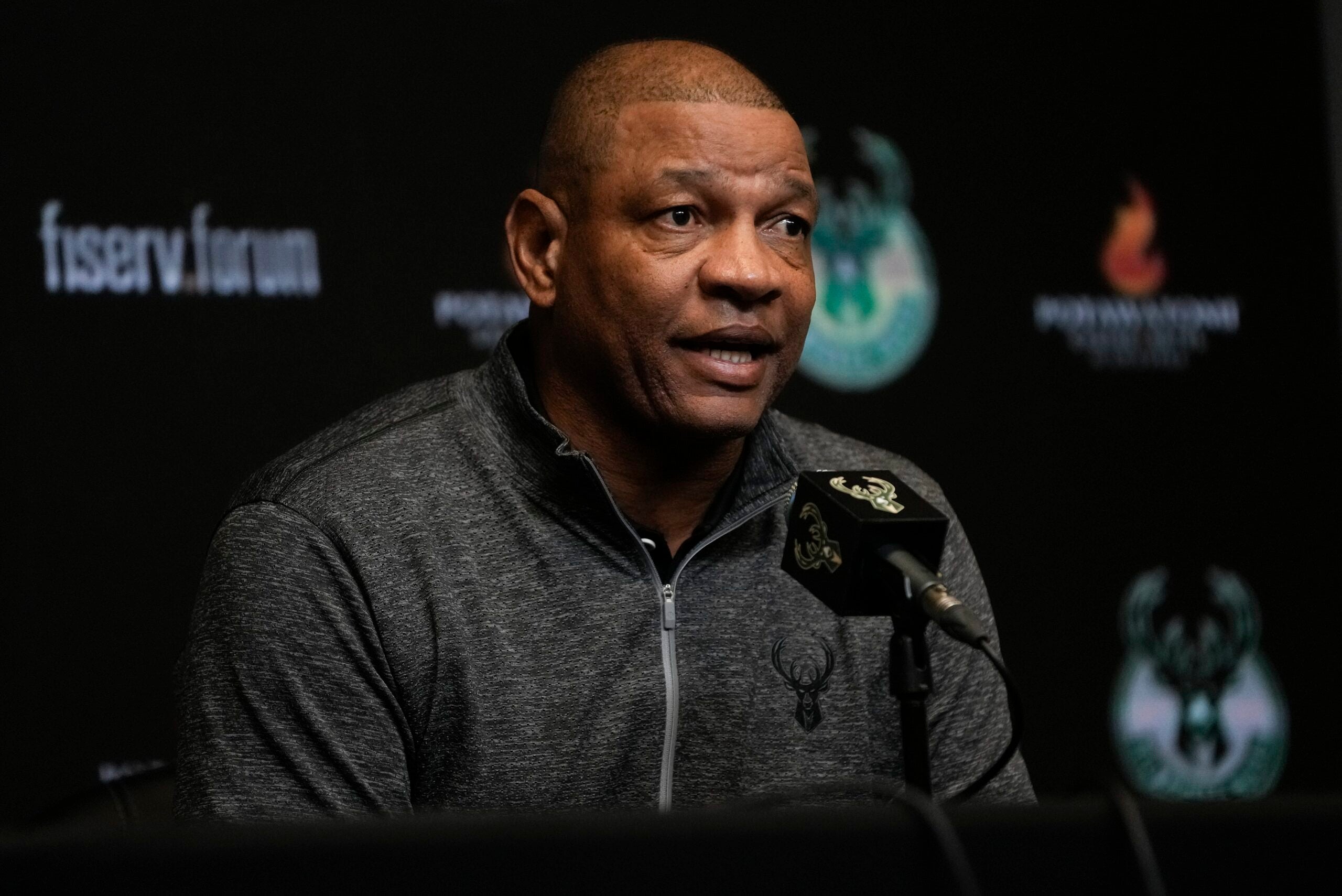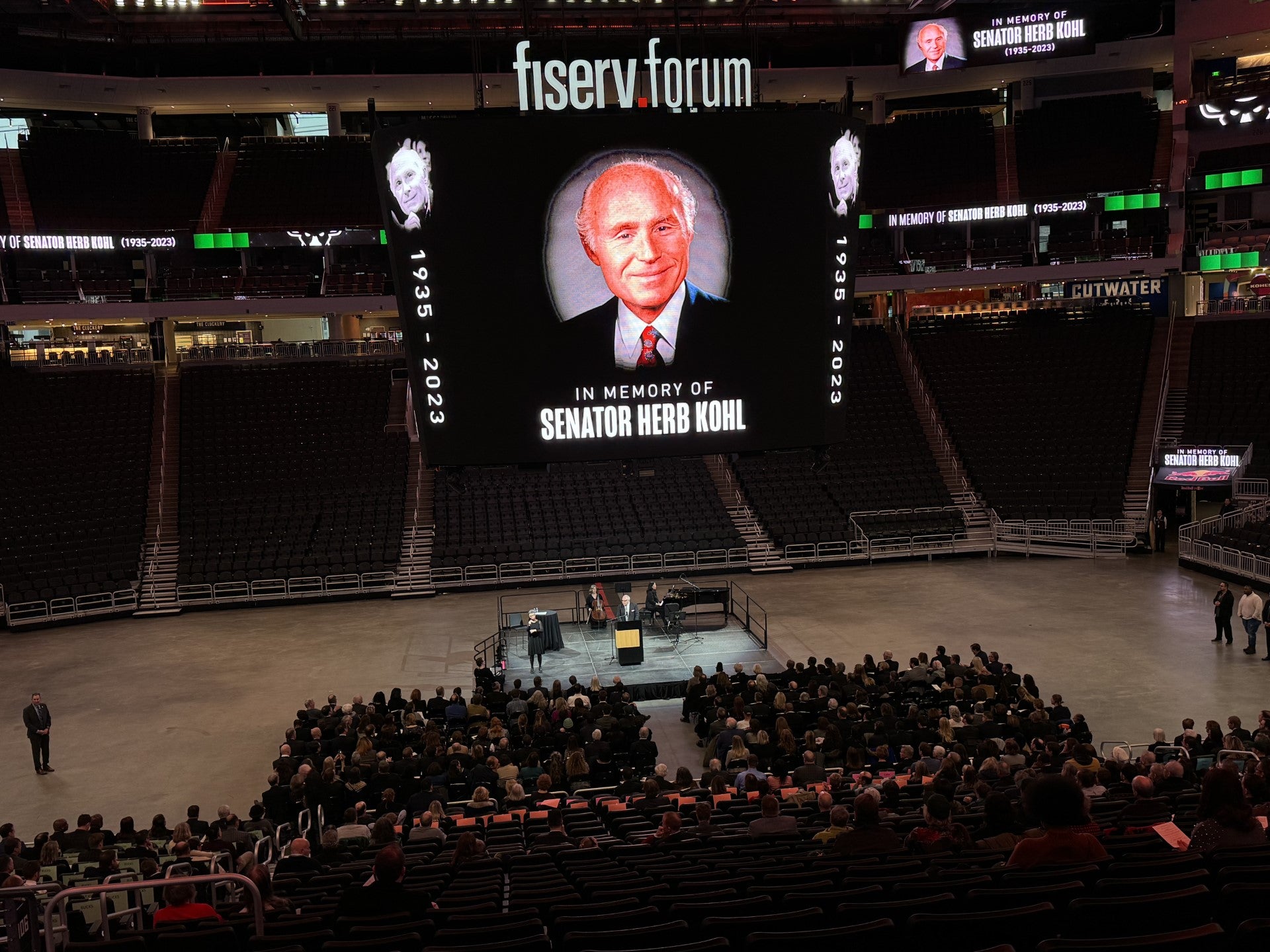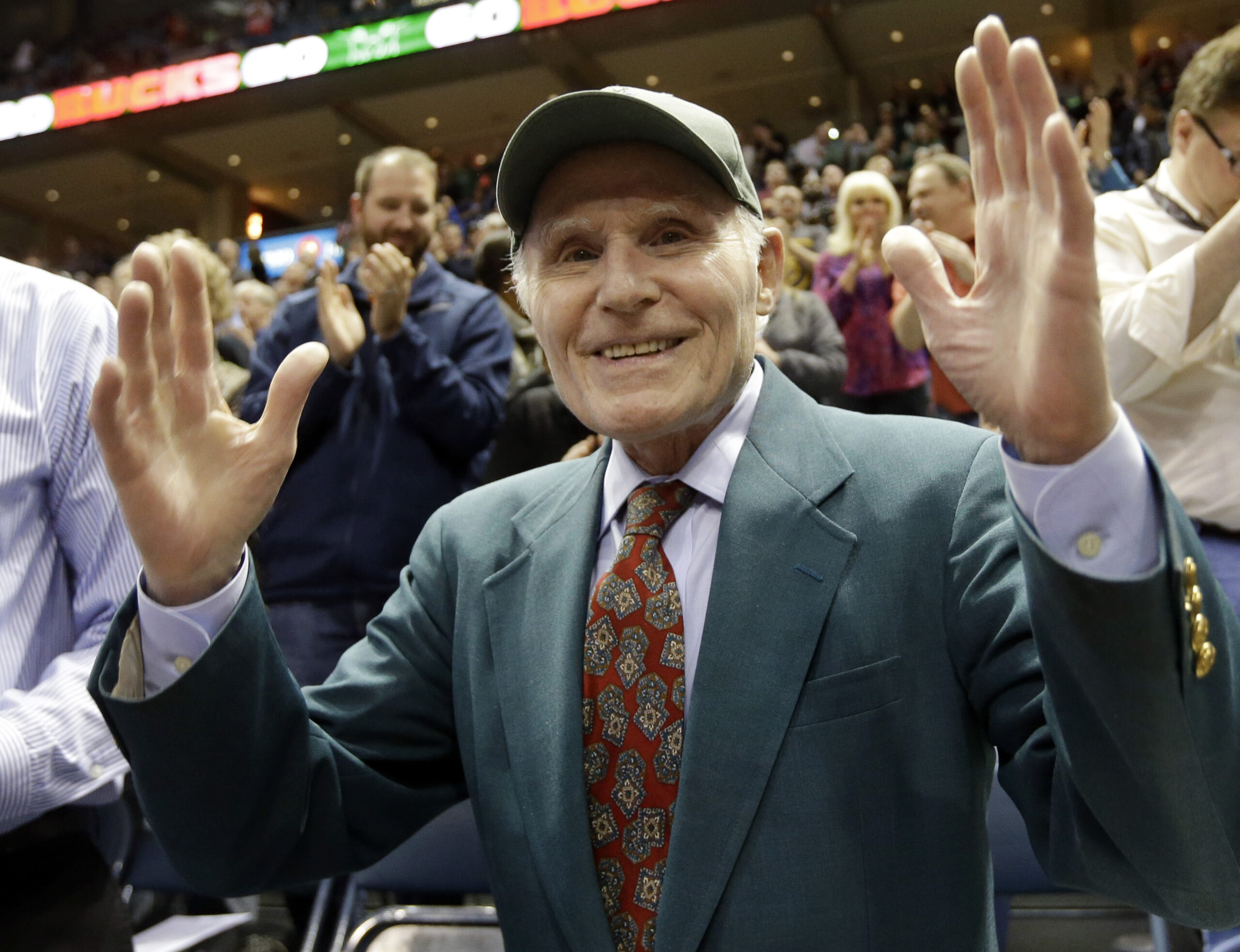As the Milwaukee Bucks prepare to host another NBA playoff game Thursday night, fans of the team are finding lots of reasons for optimism. The young Bucks players are exciting, and the new Bucks owners want to build a new arena to showcase the team.

The Bucks currently play at the Bradley Center. RoyalBroil (CC-BY-SA).
Based on comments from government leaders, an arena deal might be announced any day now, but there’s been little talk about pressing Bucks owners to pay more.
Stay informed on the latest news
Sign up for WPR’s email newsletter.
At the Bucks’ first home playoff game last week, Bucks fan Nick Williams is excited about the prospect of a new arena. The Madison resident and Milwaukee native thinks the state ought to pay for it.
“I mean, this is something tangible we can see, something that will help the community create jobs, so I think I’m all for it. I like it,” said Williams.
Bucks fan Jim Smith likes the idea of a new arena, too. But the Waukesha County resident said the state’s already offering enough money for an arena.
“The state’s ready and willing, and I think they’re just waiting for the city and the county to step up. Contribute a little bit more,” Smith said.
Conspicuously absent from those comments — and from most of the political debate over the Bucks — is any suggestion that the team’s owners should pay more. That’s vexing to Milwaukee Alderman Bob Bauman, who represents the district where the Bucks arena would be built.
“It’s really kind of breathtaking because there’s just an assumption out there that, well of course we have to pay 50 percent of this cost,” said Bauman. “That’s just an assumption. And I wonder why is that assumed. Where’s the case for financial necessity?”
While the details of the arena deal are still being negotiated, here’s what was being discussed: The new Bucks owners — two of whom made Forbes’ list of the wealthiest Americans — would pay a total of $150 million. Former owner Herb Kohl would pay $100 million of his own. That would leave the state of Wisconsin, the city of Milwaukee and Milwaukee County on the hook for $250 million. They could try banding together to demand more from the owners, but Bauman said he’s confident the strategy would fail, and the Bucks would leave town.
“We’re in an industry that can demand public subsidies. ‘If you, the public, want to retain this franchise, others are willing to offer us public incentives to move,’” he said. “’We’ll take them. We really can legally extort money from you. It’s a question of whether you want to be extorted or not.’”
Bauman said there’s only so much the city can contribute and state legislators say their constituents are wary of spending state money on the Bucks. Spring Green Republican Sen. Howard Marklein said there’s no push for it in his district.
“People are quite ambivalent on the whole issue and I don’t think they want any taxpayer money going to support a stadium,” Marklein said.
Backers of the new Bucks arena say the project is worthy of public dollars because it would boost the state’s economy. University of Maryland Economics Professor Dennis Coates, who studies the economic effect of sports teams, said that’s contrary to what research shows.
”You can’t legislate this. It either does or it doesn’t,” he said. “And there’s evidence on this.”
Coates said there is a public benefit to keeping the Bucks around if the team makes people happy.
“The difficulty is that because we have such a difficult time putting a value to that happiness, that improvement in quality of life, we don’t know if we’re getting a good deal or getting a bad deal,” he said.
Coates said the contribution Bucks owners have pledged toward this arena is actually larger than in other cities. He also said the threat to leave without a public subsidy is likely very real. When it comes to negotiating sports arenas, Coates said owners have a captive audience, and they know it.
Wisconsin Public Radio, © Copyright 2024, Board of Regents of the University of Wisconsin System and Wisconsin Educational Communications Board.

